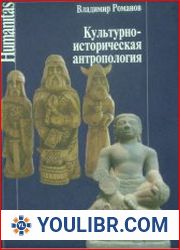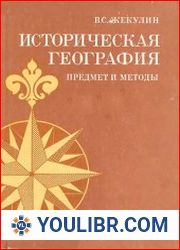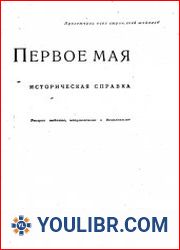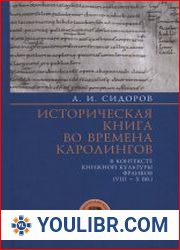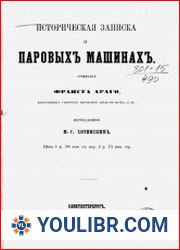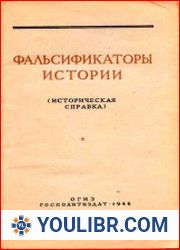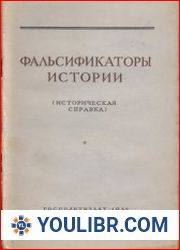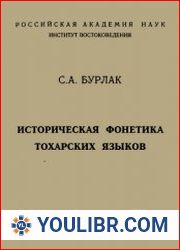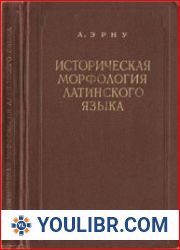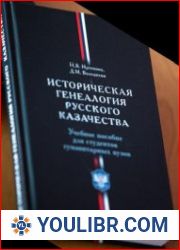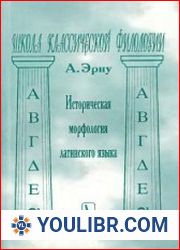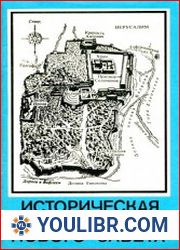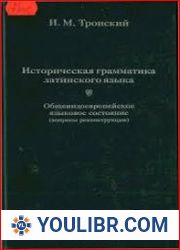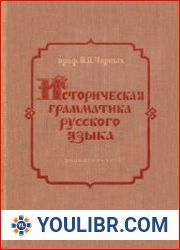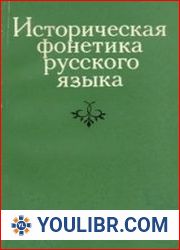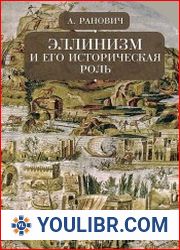
BOOKS - HUMANITIES - Культурно-историческая антропология...

Культурно-историческая антропология
Author: Романов В.Н.
Year: 2014
Format: PDF/DJVU
File size: 20.3 MB
Language: RU
Year: 2014
Format: PDF/DJVU
File size: 20.3 MB
Language: RU
The proposed book is devoted to the development of a new understanding of scientific humanitarian experience and an alternative to the objectivist anthropocentric approach to cultural research based on this understanding. The analysis of ethnographic materials of traditional societies, on the one hand, and ancient Indian texts of the Vedic and Late Vedic periods, on the other, carried out within the framework of this approach, made it possible to identify two types of cultures, sympractical and theoretical, radically different from each other both in the way information is broadcast and in the work of the consciousness of its carriers. Having previously divorced cultures into these two types, the author then embeds them into a single historical perspective. According to the hypothesis put forward in the work, we can talk about the general vector of development - from the culture of the first type to the culture of the second, and the decisive shifts that predetermined the formation of individual civilizations in their each time of a specific substantive certainty, apparently, should be attributed to the era of antiquity.
download pdf file להוריד קובץ PDF אנתרופולוגיה תרבותית והיסטורית 下载 pdf 文件 文化和歷史人類學
скачать файл PDF Культурно-историческая антропология descargar archivo pdf Antropología Cultural e Histórica télécharger le fichier pdf Anthropologie culturelle et historique PDF-Datei herunterladen Kulturhistorische Anthropologie Scarica il file pdf Antropologia culturale e storica pobierz plik pdf Antropologia kulturowa i historyczna descarregar ficheiro pdf Antropologia Cultural e Histórica download pdf file Культурно-историческая антропология تنزيل ملف pdf الأنثروبولوجيا الثقافية والتاريخية pdf dosyasını indir Kültürel ve tarihsel antropoloji pdf 파일 다운로드 PDFファイルをダウンロード 文化・歴史人類学
The proposed book is devoted to the development of a new understanding of scientific humanitarian experience and an alternative to the objectivist anthropocentric approach to cultural research based on this understanding. The analysis of ethnographic materials of traditional societies, on the one hand, and ancient Indian texts of the Vedic and Late Vedic periods, on the other, carried out within the framework of this approach, made it possible to identify two types of cultures, sympractical and theoretical, radically different from each other both in the way information is broadcast and in the work of the consciousness of its carriers. Having previously divorced cultures into these two types, the author then embeds them into a single historical perspective. According to the hypothesis put forward in the work, we can talk about the general vector of development - from the culture of the first type to the culture of the second, and the decisive shifts that predetermined the formation of individual civilizations in their each time of a specific substantive certainty, apparently, should be attributed to the era of antiquity.
Das vorgeschlagene Buch widmet sich der Entwicklung eines neuen Verständnisses wissenschaftlicher humanitärer Erfahrungen und eines darauf aufbauenden alternativen objektivistischen anthropozentrischen Ansatzes zur Kulturforschung. Die im Rahmen dieses Ansatzes durchgeführte Analyse der ethnographischen Materialien traditioneller Gesellschaften einerseits und der alten indischen Texte der vedischen und spätwedischen Periode andererseits ermöglichte es, zwei Arten von Kulturen zu identifizieren, die sich sowohl in der Art und Weise der Informationsübertragung als auch in der Arbeit des Bewusstseins ihrer Träger radikal unterscheiden. Nachdem der Autor zuvor Kulturen in diesen beiden Typen gezüchtet hat, bettet er sie dann in eine einzige historische Perspektive ein. Nach der in der Arbeit vorgestellten Hypothese kann man von einem allgemeinen Entwicklungsvektor sprechen - von einer Kultur des ersten Typs zu einer Kultur des zweiten, wobei die entscheidenden Verschiebungen, die die Bildung der einzelnen Zivilisationen in ihrer jeweils konkreten inhaltlichen Bestimmtheit vorbestimmt haben, allem Anschein nach der Epoche des Altertums zuzuordnen sind.
O livro proposto trata do desenvolvimento de uma nova compreensão da experiência científica humanitária e baseia-se nesta compreensão de uma abordagem objetiva alternativa da exploração cultural antropocêntrica. Como parte desta abordagem, a análise dos materiais etnográficos das sociedades tradicionais, por um lado, e dos antigos textos indianos dos períodos védio e tardio, por outro, permitiu identificar dois tipos de culturas, simpáticas e teóricas, que variam radicalmente entre si, tanto no modo como a informação é transmitida, como na consciência de seus portadores. Explorando a cultura pré-cultural em dois tipos, o autor os insere em uma perspectiva histórica unificada. De acordo com a hipótese apresentada no trabalho, pode-se falar de um vetor de desenvolvimento comum, da cultura do primeiro tipo para a cultura do segundo, e as mudanças cruciais que determinaram o estabelecimento de civilizações individuais em cada vez certezas substanciais específicas devem ser atribuídas à época da antiguidade.
El libro propuesto trata sobre el desarrollo de una nueva comprensión de la experiencia científica humanitaria y un enfoque antropocéntrico objetivista alternativo a la investigación cultural basado en esta comprensión. El análisis de los materiales etnográficos de las sociedades tradicionales, por un lado, y de los antiguos textos indios de los períodos Védico y tardío, por el otro, ha permitido identificar dos tipos de culturas, la simpráctica y la teórica, que difieren radicalmente entre sí, tanto en la forma en que se transmite la información como en el trabajo de la conciencia de sus portadores. La inteligencia es pre-cultura en dos de estos tipos, el autor los incrusta luego en una única perspectiva histórica. De acuerdo con la hipótesis de la obra, se puede hablar de un vector general del desarrollo - de la cultura del primer tipo a la cultura del segundo, y los cambios decisivos que predestinaron el devenir de las civilizaciones individuales en cada vez de una certeza significativa específica deben atribuirse aparentemente a la era de la antigüedad.
Le livre proposé est consacré au développement d'une nouvelle compréhension de l'expérience scientifique humanitaire et de l'approche anthropocentrique alternative objective de la recherche culturelle basée sur cette compréhension. L'analyse des matériaux ethnographiques des sociétés traditionnelles, d'une part, et des textes indiens anciens des périodes védique et tardive, d'autre part, a permis d'identifier deux types de cultures, simpractiques et théoriques, radicalement différentes, à la fois sur la façon dont l'information est diffusée et sur la conscience de ses porteurs. En explorant les cultures à partir de ces deux types, l'auteur les intègre ensuite dans une perspective historique unique. Selon l'hypothèse présentée dans les travaux, on peut parler d'un vecteur de développement commun - de la culture du premier type à la culture du second, et les changements décisifs qui ont prédéterminé l'émergence de civilisations individuelles dans leur certitude de fond à chaque fois spécifique devraient probablement être attribués à l'époque de l'antiquité.
Предлагаемая книга посвящена разработке нового понимания научного гуманитарного опыта и основывающегося на этом понимании альтернативного объективистскому антропоцентричного подхода к исследованию культуры. Проведенный в рамках этого подхода анализ этнографических материалов традиционных обществ, с одной стороны, и древнеиндийских текстов ведийского и поздневедийского периодов - с другой, позволил выявить два типа культур, симпрактических и теоретических, кардинально различающихся между собой как по способу трансляции информации, так и по работе сознания ее носителей. Разведя предварительно культуры по двум эти типам, автор встраивает их затем в единую историческую перспективу. Согласно выдвинутой в работе гипотезе, можно говорить об общем векторе развития - от культуры первого типа к культуре второго, причем решающие сдвиги, предопределившие становление отдельных цивилизаций в их каждый раз конкретной содержательной определенности, следует, по всей видимости, отнести к эпохе древности.
Il libro proposto è dedicato allo sviluppo di una nuova comprensione delle esperienze scientifiche umanitarie e di un approccio alla ricerca della cultura, alternativa all'obiettivo. Nell'ambito di questo approccio, l'analisi dei materiali etnografici delle società tradizionali, da un lato, e dei testi antichi indiani dei periodi vedico e tardivo, dall'altro, ha permesso di individuare due tipi di culture, simpatiche e teoriche, che differiscono radicalmente dal modo in cui le informazioni vengono trasmesse e dalla coscienza dei suoi portatori. Esplorando la cultura in base a questi due tipi, l'autore li inserisce poi in un'unica prospettiva storica. Secondo l'ipotesi del lavoro, si può parlare di un vettore di sviluppo comune, da una cultura di primo tipo a una cultura di secondo grado, e i cambiamenti decisivi che hanno determinato il divenire delle singole civiltà in ogni singola certezza di fondo, sembrano essere attribuiti all'epoca dell'antichità.
The proposed book is devoted to the development of a new understanding of scientific humanitarian experience and an alternative to the objectivist anthropocentric approach to cultural research based on this understanding. The analysis of ethnographic materials of traditional societies, on the one hand, and ancient Indian texts of the Vedic and Late Vedic periods, on the other, carried out within the framework of this approach, made it possible to identify two types of cultures, sympractical and theoretical, radically different from each other both in the way information is broadcast and in the work of the consciousness of its carriers. Having previously divorced cultures into these two types, the author then embeds them into a single historical perspective. According to the hypothesis put forward in the work, we can talk about the general vector of development - from the culture of the first type to the culture of the second, and the decisive shifts that predetermined the formation of individual civilizations in their each time of a specific substantive certainty, apparently, should be attributed to the era of antiquity.
Das vorgeschlagene Buch widmet sich der Entwicklung eines neuen Verständnisses wissenschaftlicher humanitärer Erfahrungen und eines darauf aufbauenden alternativen objektivistischen anthropozentrischen Ansatzes zur Kulturforschung. Die im Rahmen dieses Ansatzes durchgeführte Analyse der ethnographischen Materialien traditioneller Gesellschaften einerseits und der alten indischen Texte der vedischen und spätwedischen Periode andererseits ermöglichte es, zwei Arten von Kulturen zu identifizieren, die sich sowohl in der Art und Weise der Informationsübertragung als auch in der Arbeit des Bewusstseins ihrer Träger radikal unterscheiden. Nachdem der Autor zuvor Kulturen in diesen beiden Typen gezüchtet hat, bettet er sie dann in eine einzige historische Perspektive ein. Nach der in der Arbeit vorgestellten Hypothese kann man von einem allgemeinen Entwicklungsvektor sprechen - von einer Kultur des ersten Typs zu einer Kultur des zweiten, wobei die entscheidenden Verschiebungen, die die Bildung der einzelnen Zivilisationen in ihrer jeweils konkreten inhaltlichen Bestimmtheit vorbestimmt haben, allem Anschein nach der Epoche des Altertums zuzuordnen sind.
O livro proposto trata do desenvolvimento de uma nova compreensão da experiência científica humanitária e baseia-se nesta compreensão de uma abordagem objetiva alternativa da exploração cultural antropocêntrica. Como parte desta abordagem, a análise dos materiais etnográficos das sociedades tradicionais, por um lado, e dos antigos textos indianos dos períodos védio e tardio, por outro, permitiu identificar dois tipos de culturas, simpáticas e teóricas, que variam radicalmente entre si, tanto no modo como a informação é transmitida, como na consciência de seus portadores. Explorando a cultura pré-cultural em dois tipos, o autor os insere em uma perspectiva histórica unificada. De acordo com a hipótese apresentada no trabalho, pode-se falar de um vetor de desenvolvimento comum, da cultura do primeiro tipo para a cultura do segundo, e as mudanças cruciais que determinaram o estabelecimento de civilizações individuais em cada vez certezas substanciais específicas devem ser atribuídas à época da antiguidade.
El libro propuesto trata sobre el desarrollo de una nueva comprensión de la experiencia científica humanitaria y un enfoque antropocéntrico objetivista alternativo a la investigación cultural basado en esta comprensión. El análisis de los materiales etnográficos de las sociedades tradicionales, por un lado, y de los antiguos textos indios de los períodos Védico y tardío, por el otro, ha permitido identificar dos tipos de culturas, la simpráctica y la teórica, que difieren radicalmente entre sí, tanto en la forma en que se transmite la información como en el trabajo de la conciencia de sus portadores. La inteligencia es pre-cultura en dos de estos tipos, el autor los incrusta luego en una única perspectiva histórica. De acuerdo con la hipótesis de la obra, se puede hablar de un vector general del desarrollo - de la cultura del primer tipo a la cultura del segundo, y los cambios decisivos que predestinaron el devenir de las civilizaciones individuales en cada vez de una certeza significativa específica deben atribuirse aparentemente a la era de la antigüedad.
Le livre proposé est consacré au développement d'une nouvelle compréhension de l'expérience scientifique humanitaire et de l'approche anthropocentrique alternative objective de la recherche culturelle basée sur cette compréhension. L'analyse des matériaux ethnographiques des sociétés traditionnelles, d'une part, et des textes indiens anciens des périodes védique et tardive, d'autre part, a permis d'identifier deux types de cultures, simpractiques et théoriques, radicalement différentes, à la fois sur la façon dont l'information est diffusée et sur la conscience de ses porteurs. En explorant les cultures à partir de ces deux types, l'auteur les intègre ensuite dans une perspective historique unique. Selon l'hypothèse présentée dans les travaux, on peut parler d'un vecteur de développement commun - de la culture du premier type à la culture du second, et les changements décisifs qui ont prédéterminé l'émergence de civilisations individuelles dans leur certitude de fond à chaque fois spécifique devraient probablement être attribués à l'époque de l'antiquité.
Предлагаемая книга посвящена разработке нового понимания научного гуманитарного опыта и основывающегося на этом понимании альтернативного объективистскому антропоцентричного подхода к исследованию культуры. Проведенный в рамках этого подхода анализ этнографических материалов традиционных обществ, с одной стороны, и древнеиндийских текстов ведийского и поздневедийского периодов - с другой, позволил выявить два типа культур, симпрактических и теоретических, кардинально различающихся между собой как по способу трансляции информации, так и по работе сознания ее носителей. Разведя предварительно культуры по двум эти типам, автор встраивает их затем в единую историческую перспективу. Согласно выдвинутой в работе гипотезе, можно говорить об общем векторе развития - от культуры первого типа к культуре второго, причем решающие сдвиги, предопределившие становление отдельных цивилизаций в их каждый раз конкретной содержательной определенности, следует, по всей видимости, отнести к эпохе древности.
Il libro proposto è dedicato allo sviluppo di una nuova comprensione delle esperienze scientifiche umanitarie e di un approccio alla ricerca della cultura, alternativa all'obiettivo. Nell'ambito di questo approccio, l'analisi dei materiali etnografici delle società tradizionali, da un lato, e dei testi antichi indiani dei periodi vedico e tardivo, dall'altro, ha permesso di individuare due tipi di culture, simpatiche e teoriche, che differiscono radicalmente dal modo in cui le informazioni vengono trasmesse e dalla coscienza dei suoi portatori. Esplorando la cultura in base a questi due tipi, l'autore li inserisce poi in un'unica prospettiva storica. Secondo l'ipotesi del lavoro, si può parlare di un vettore di sviluppo comune, da una cultura di primo tipo a una cultura di secondo grado, e i cambiamenti decisivi che hanno determinato il divenire delle singole civiltà in ogni singola certezza di fondo, sembrano essere attribuiti all'epoca dell'antichità.







